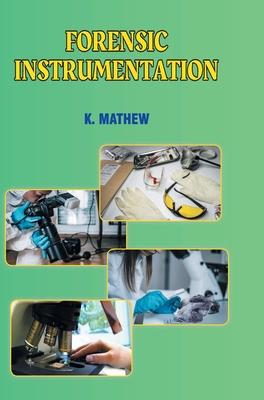Forensic instrumentation is crucial in assisting criminal investigations. By utilizing various analytical techniques, forensic scientists can extract vital information from physical evidence that may otherwise be overlooked or too intricate for human interpretation alone. As technology continues to advance, these instruments offer even greater potential for more accurate and efficient analysis in the pursuit of justice.This book aims to provide a comprehensive understanding of the essential tools used in forensic science. It offers detailed explanations and practical examples to equip students and professionals with the knowledge they need for effective crime scene investigation using advanced instruments. By outlining key concepts, principles, and applications, it enhances the accuracy and efficiency of forensic analysis by promoting proficiency in instrument operation and data interpretation.This reference work also emphasizes the importance of interdisciplinary collaboration between technology, chemistry, biology, physics, and criminal justice disciplines. Additionally, it highlights the significance of calibration techniques to ensure reliable results while addressing potential limitations associated with specific instrumentation methods. Forensic Instrumentation serves as a valuable resource that fosters professional competence within forensic laboratories worldwide.
| FindBook |
有 1 項符合
Forensic Instrumentation的圖書 |
 |
Forensic Instrumentation 作者:Mathew 出版社:Discovery Publishing House (India) 出版日期:2024-04-01 語言:英文 規格:精裝 / 228頁 / 24.41 x 16.99 x 1.42 cm / 普通級/ 初版 |
| 圖書館借閱 |
| 國家圖書館 | 全國圖書書目資訊網 | 國立公共資訊圖書館 | 電子書服務平台 | MetaCat 跨館整合查詢 |
| 臺北市立圖書館 | 新北市立圖書館 | 基隆市公共圖書館 | 桃園市立圖書館 | 新竹縣公共圖書館 |
| 苗栗縣立圖書館 | 臺中市立圖書館 | 彰化縣公共圖書館 | 南投縣文化局 | 雲林縣公共圖書館 |
| 嘉義縣圖書館 | 臺南市立圖書館 | 高雄市立圖書館 | 屏東縣公共圖書館 | 宜蘭縣公共圖書館 |
| 花蓮縣文化局 | 臺東縣文化處 |
|
|
圖書介紹 - 資料來源:博客來 評分:
圖書名稱:Forensic Instrumentation
|











